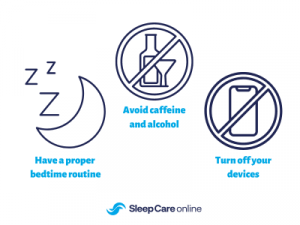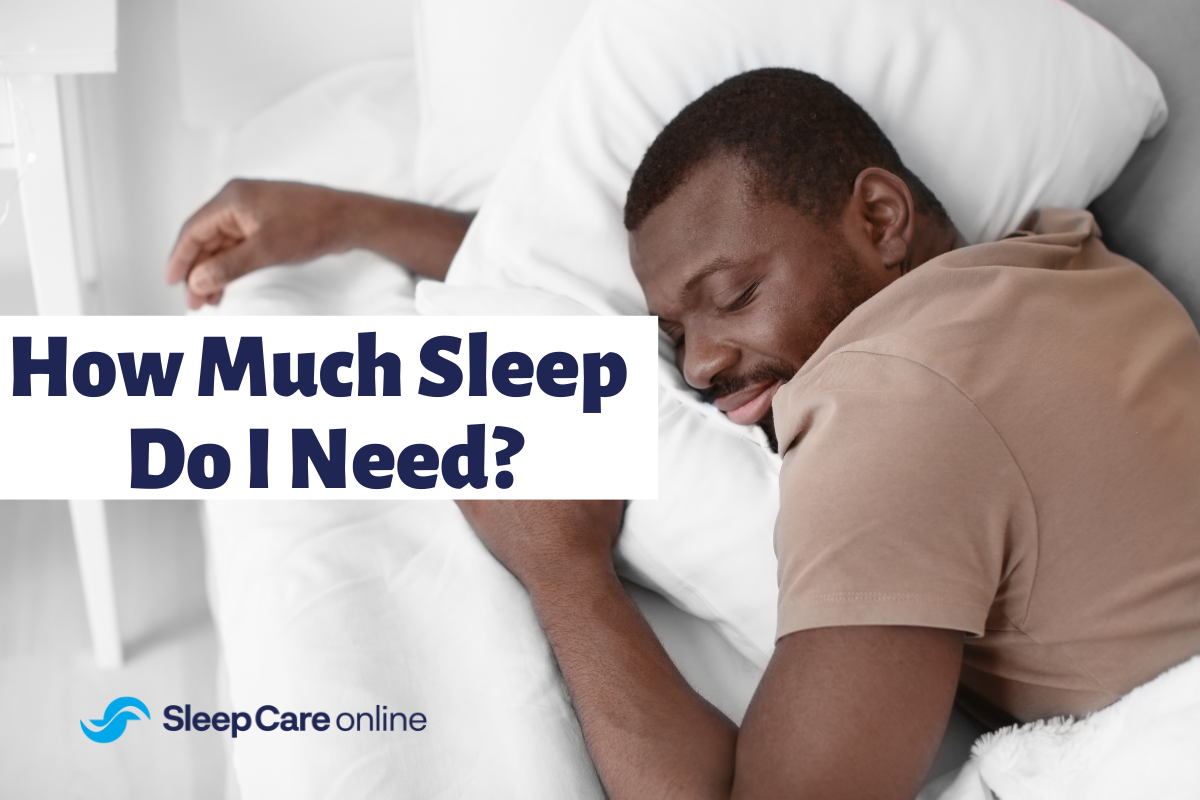Key Takeaways:
- It is proven that smoking is a significant risk factor for obstructive sleep apnea (OSA).
- That’s because smoking causes chronic inflammation in the upper airway, causing the airway to swell and narrow.
- Common symptoms of sleep apnea include snoring, morning fatigue, headaches, and more. Learn more about smoking and sleep apnea in this video.
According to the CDC, approximately 14 percent (34.1 million) of Americans aged 18 and over are current smokers.1 While this number has gone down, smoking is still one of the leading causes of preventable disease and death in the United States. Tobacco contains a chemical called nicotine, and its use has been linked to several health risks including cancer, type 2 diabetes, cardiovascular disease, and more. There is not a lot of concrete evidence that smoking causes sleep apnea, however, the link between the two is certain.
Nicotine affects the neuromuscular function of the upper airway muscles. The neuromuscular function is the coordinated interaction between the nervous system and muscles which enables movement, posture, and more. Nicotine can initially stimulate these muscles, but its withdrawal during sleep can lead to a “rebound effect,” causing relaxation and collapse of the airway.
Relationship Between Smoking and Sleep Apnea
Smoking induces more insomnia and arousal, which can exacerbate the severity of OSA by increasing the frequency of apneas and hypopneas. Smoking can also cause inflammation in the throat because of tobacco and other materials in cigarettes. The inflammation in the throat can cause the upper airways to narrow, which could induce sleep apnea. Although any amount of smoking impacts a person’s sleep health, those who smoke more frequently have a higher chance of getting sleep apnea and other health problems.
What Happens to a Smoker During Sleep?
There are several common factors that smokers experience during sleep. These factors may explain why sleep apnea is more prevalent in smokers than nonsmokers. They include:
- Relaxation of the upper airway muscles caused by nicotine
- Increased upper airway inflammation
- Changes in sleep patterns (increased sleep deprivation, sleep fragmentation, etc.)
- More frequent sleep arousal caused by nicotine
Research suggests that smoking can disrupt healthy sleep patterns. As a result, current smokers may find it more difficult to not only fall asleep but also stay asleep.
Does Smoking Cause Sleep Apnea?
It is not only smokers who are affected by their habits. Secondhand smoke can impact others in the home and may aggravate sleep apnea symptoms in them. A recent study looked at children ages three to 18 to assess the association between exposure to secondhand smoke and obstructive sleep apnea severity. Overall, 167 children were studied; 70 had severe OSA.
Does Vaping Make Sleep Apnea Worse?
The chemicals in vape liquids, even if they don’t include nicotine, can affect your sleep health and sleep apnea symptoms. Vapes that do include also can have negative impacts on sleep health, blood pressure, and more. Because of these impacts, sleep apnea is also likely to get worse from vaping.
Metabolic Disorders Associated with Smoking and Sleep Apnea
Sleep apnea can be affected by more than one lifestyle choice. Smoking is one behavior that can increase sleep apnea episodes. Metabolic disorders can also play a part. A metabolic disorder occurs when abnormal chemical reactions disrupt the body’s metabolism. This could affect how well the body can break down large molecules for energy, how efficiently cells can produce energy, or cause problems with energy regulation. Metabolic disorders are most commonly related to diet and weight but can also be genetic in origin.
Diabetes is one of the most common metabolic disorders. For individuals who have metabolic disorders and also smoke, the risk for severe obstructive sleep apnea is greatly increased.
Relation Between Nicotine and Sleep
Nicotine affects healthy sleep because it is a stimulant. Often sleep issues like sleep apnea go unnoticed by smokers as the rush from a hit of nicotine in their morning cigarette can mask the daytime drowsiness associated with the effects of sleep apnea.
Many people who first quit smoking may also feel a sleep disruption initially. The absence of nicotine can lead to withdrawals which can affect sleep within the first days and weeks after quitting smoking.
In time, however, the body recalibrates and recovers, and the long-term sleep benefits will outweigh the brief sleep loss that follows smoking cessation.
Relation Between Smoking and Snoring
With the evidence that smoking increases airway inflammation, it makes sense that it can cause excessive snoring as well. The tissues that line the airway, known as the mucosa, become irritated and inflamed, causing the post-nasal drip. In one study, it was found that smokers were 2.3 times more likely to snore excessively than nonsmokers.3 While snoring itself does not always indicate sleep apnea, for smokers it may be an early warning sign.
Passive Smoking And Sleep Apnea
Smoking can be a problem for sleep apnea for non-smokers in the house too.
While smoking worsens sleep apnea, passive smoking has almost similar results for sleep apnea deterioration. Passive smoking can lead to severe OSA in children and can lead to problems as they grow.
While the study on the effects of passive smoking and sleep apnea was limited, the research provides a definitive understanding of the relationship between sleep apnea and passive smoking. The study concluded that irrespective of age or proximity to smoking, cigarette smoke always worsens sleep apnea.
How Smoking Increases The Risk For Sleep Apnea
Smokers are three times more likely to have obstructive sleep apnea than people who’ve never smoked.4 However, smoking may be one of several factors contributing to your sleep apnea. As mentioned, smoking has already been linked to other health risks including
- Cardiovascular disease
- Type 2 diabetes
- Stroke
- Respiratory illness
These health risks are also present in sleep apnea patients, so smokers with these other health factors could also be living with undiagnosed sleep apnea.
Will Quitting Smoking Help Sleep Apnea?
Quitting smoking will certainly reduce the risk of developing sleep apnea if you do not have a sleep disorder. If you are already diagnosed with sleep apnea, the condition will not just go away if you quit smoking. However, quitting can alleviate some of the symptoms and severity of sleep apnea.
When you’re quitting smoking cigarettes, be mindful of the side effects that will come with it. They can include:
- Sudden outbursts or feelings of anger
- Having trouble concentrating
- Constipation and/or diarrhea
- Headaches
- Feeling hungrier
However, do not let these side effects and others deter you from quitting smoking to improve your sleep apnea symptoms and overall health.
Tips For Improving Smoking-Related Sleep Apnea
Whether you currently smoke or have previously had sleep apnea, there are many healthy habits that you can practice to improve your sleep and sleep condition. They include:
- Maintaining a bedtime routine
- Avoiding caffeine and/or alcohol at least six hours before bedtime
- Turn off your devices to not get distracted by screens while trying to fall asleep
Not Sure if You Have Sleep Apnea?
The only way to confirm a sleep apnea diagnosis is with a sleep study. Luckily, Sleep Care Online provides patients with an affordable, convenient home option known as the Complete Care Package. Patients receive a disposable sleep test, the NightOwl, follow the instructions, and take their sleep test from the comfort of their own bed. No overnight stays in sleep labs and waiting up to 2 weeks for results.
- With a Complete Care Package, you will schedule a 10-minute telehealth visit with a healthcare provider to discuss symptoms, upcoming sleep study, test results, and discuss treatment options.
- A multi-night, disposable home sleep apnea test is mailed to your house to be completed at your convenience.
- A physician analyzes the sleep data and provides a prescription if needed.
- Schedule an optional follow-up appointment (additional fee applies).
- We connect you to sleep experts who can offer customized sleep therapy options, assistance in equipment purchase, and initial set-up.
For more information about Sleep Care Online or the Complete Care Package, email us at contact@sleepcareonline.com or call 866-465-4478.
References
- Centers for Disease Control & Prevention. Current Cigarette Smoking Among Adults in the United States.Updated 10 Dec 2020. Accessed April 2021.
- Krishnan, V, et al. Where There Is Smoke… There Is Sleep Apnea. Published Dec 2014. Accessed April 2021.
- Peters, Brandon, MD. Can Smoking Cigarettes Cause Snoring and Sleep Apnea? 10 Aug 2020. Accessed April 2021.
- McNamara, J P, et al. “Sleep Disturbances Associated with Cigarette Smoking.” Current Neurology and Neuroscience Reports., U.S. National Library of Medicine, 17 Sept. 2013. Accessed March 2021.

Dr. Kunal Agarwal is a highly accomplished board-certified physician specializing in Family Medicine, Sleep Medicine, and Obesity Medicine. He completed his residency at Michigan State University and a fellowship at Henry Ford Health System, and has over a decade of experience delivering exceptional patient outcomes. Dr. Argarwal is passionate about patient education and advocacy, sleep disorders, and more. His expertise in treating sleep apnea is extremely valuable to improve his patients’ lives.
Awards, Honors, & Recognition
Top Doctor
SRQ Magazine and Sarasota Magazine, 2023-2024
Fellow of American Academy of Sleep Medicine (FAASM)
American Academy of Sleep Medicine, 2021
Named “Top Doctor” for 2017, 2018 (on cover), 2019,and 2020 by Delaware Today Magazine
2017-2020






